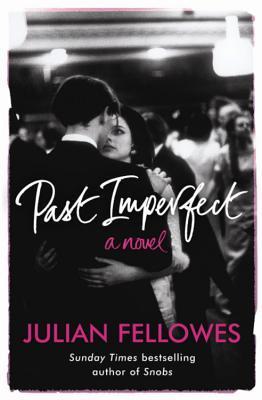What do you think?
Rate this book


528 pages, Paperback
First published October 30, 2008
He was born unsatisfactory. He had one of those flat faces, like a carnival mask that had been dropped in the road and run over by a heavy lorry. His skin was sallow, verging on olive, but this did not, as it might have, give him an exotic quality. Rather, he resembled an ailing Mediterranean lift attendant, with round, moist eyes resting in a pool of wrinkles, two fried eggs in fat.
There’s danger in it, obviously, but I no longer fight the sad realisation that the setting for my growing years seems sweeter to me than the one I now inhabit. Today’s young, in righteous, understandable defence of their own time, generally reject our reminiscences about a golden age when the customer was always right, when AA men saluted the badge on your car and policemen touched their helmet in greeting. Thank heaven for the end of deference, they say, but deference is part of an ordered, certain world and, in retrospect at least, that can feel warming and even kind. I suppose what I miss above all things is the kindness of the England of half a century ago. But then again, is it the kindness I regret, or my own youth?
In the forty years that followed, that decade has been hijacked by the voice of the Liberal Tyranny. Theirs is the Woodstock version of the period – ‘if you can remember the Sixties, you weren’t really there,’ run the smug and self-regarding phrases – and they have no conscience in holding up the values of the pop revolution as the whole truth, but they are either deceiving or deceived. What was genuinely unusual about the era for those of us who were around at the time was not a bunch of guitar players smoking dope and wearing embarrassing hats with feathers, and leather singlets lined with sheepskin. What marked it apart from the other periods I have lived through was that, like Janus, it faced both ways.
Various politicians of every hue saw class warfare as so important a weapon in manipulating public opinion that they could not resist inflaming it. Even today, we are constantly encouraged to believe in a capitalist economy, but to despise and revile those who profit from it. It is an odd philosophical position, to say the least, a dysfunctional theory that has contributed to a largely dysfunctional society, but as I say, in the 1960s it was only just starting. Breaking down class barriers was still seen as a happy thing then, so the jokes at one’s expense were, on the whole, good-natured.
The young are often told, or were in the days when I was a child, that parvenus and other rank outsiders may on occasion be rude, but real ladies and gentlemen are never anything but perfectly polite. This is, of course, complete rubbish. The rude, like the polite, may be found at every level of society, but there is a particular kind of rudeness, when it rests on empty snobbery, on an assumption of superiority made by people who have nothing superior about them, who have nothing about them at all, in fact, that is unique to the upper classes and very hard to swallow.
Not for the first time I wondered at how, among the upper classes particularly but perhaps in every section of society, extremely clever women live with very, very stupid men with without the husbands’ ever apparently becoming aware of the sacrifice their wives are making daily.